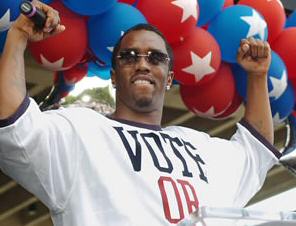Pick of Top Influential Business Leaders Highlights Innovation
December 20, 04
What do Sean Combs, Sam Jonah, Serge Weinberg, and Sheik Mohammed have in common? Do you know who they are or how they influence our industry? They are among CNN’s top 25 ’2004 Global Business Influentials’ and shape, among others, the global jewelry and fashion industry.
As the year winds down, and we all take stock of the year that passed, CNN has picked what it considers the top people who have influenced the business world in the past year.
Its no wonder that the angle CNN picked was innovation and reputation. “A new breed of executives has taken to ridding their firms of unethical practices, unprofitable divisions and outdated strategies to boost their companies' reputations and bottom lines,” is how CNN opens its article on the world’s top business people.
In a post business-scandal era, Enron in 2001 the most notable, businesses seeking to excel had to take their reputations into account and forge a leadership based on innovation, ethics and straightforward accounting, CNN claims.
Among the list of leaders who did so are some of the most influential names and companies in our industry, upstream and downstream alike.
|
|
Rapper turned fashion mogul Sean “P. Diddy” Combs and his fashion company Bad Boy Worldwide Entertainment Group are the forefront example of reputation, and fifth on the list. “The first key to building a strong reputation, and furthermore a brand, is exposure,” it says. We saw the relentlessly active Combs do that with his heavily PR-ed birthday party, his Vote or Die campaign and his Daniel K sponsored 4th of July bash.
Combs’ $300 million empire includes a record label, two restaurants, music-publishing, a clothing line and a marketing company. The latter, Blue Flame, teaches Fortune 500 clients like Pepsi and Microsoft how to reach inner-city crowds. Known for his style, many jewelers enjoy pointing out that he wears, or rather flashes, their creations.
Blue Flame might just be the sort of company that DTC, Sightholders or any other diamond jewelry company might seek its advice to reach an audience known for its appetite for big and bold jewelry items.
Sam Jonah is probably less known to retailers than Combs, even less so to consumers. “Africa's most influential black miner” heads AngloGold Ashanti. The world's second largest gold miner, it was formed after Jonah lead a merger between Ashanti Goldfields and AngloGold, part of the Anglo American conglomerate that holds a 45 percent stake in De Beers.
At a time when African countries are demanding from the world greater benefits from its own diamond riches on the one hand and facing demands by the world to set tighter controls to ensure legal mining and rough diamond trading on the other, Jonah says he believes that African companies and governments must be held to international standards but that the southern hemisphere often gets the raw end of trade deals. “Globalization can bring tremendous benefits to Africa,” he told CNN. “But there is no level playing field.”
Earnings of Serge Weinberg’s Pinault-Printemps-Redoute (PPR) were up 143 percent during the last quarter to $80 million. With hot names such as Gucci and YSL and a chain of department stores that include Fnac, Weinberg is the most important fashion retailer in the heart of European fashion – France.
He transformed the troubled company within a decade, setting a new standard for brands when he allowed Gucci’s famed creative director Tom Ford to leave the company, saying, “A brand is much more important than the designer”. Many were skeptic but the financial results prove otherwise.
A recent darling of the diamond industry, Dubai would not have become a new hub for the industry if it wasn’t for the vision, determination and inspiration of its Crown Prince Sheik Mohammed bin Rashid al Maktoum.
We are familiar with the efforts to bring the diamond industry to Dubai, but it is just one of many such efforts in a range of industries. Case in point is Internet City, a free-trade zone for businesses.
He ”Spurred growth by channeling government funds, providing infrastructure and slashing red tape for new resorts, business centers and port facilities,” CNN says about the royal leader who transformed the country’s GDP from $8 billion a decade ago to the current $20 billion. He did it by insisting on success, or as one local banker puts it, “Sheik Mohammed doesn't have the word failure in his dictionary”.
It’s interesting to note that the usual hi-tech faces, known for innovation, are glaringly lacking. Not even the two boyish Brin and Page of Google and their spectacular recent IPO. On the other hand, MTV Networks President Judy Mcgrath, Bertelsmann’s Gunter Thielen and Red Bull founder Dietrich Mateschitz are there. All of them head high visibility companies with strong brands, and a focus on the fashionable and trendy. That is food for thought.
